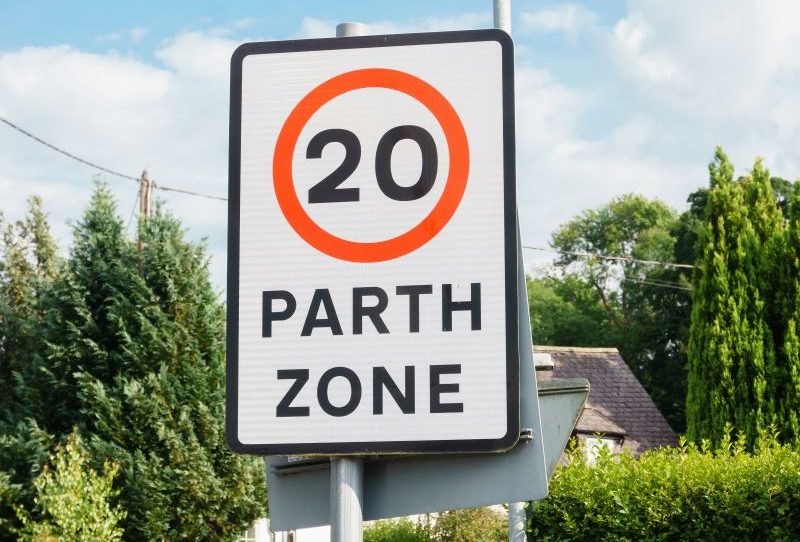The decision to revert some roads back to a 30mph speed limit in Wales has been met with support from some quarters of the bus sector.
Welsh Transport Secretary Ken Skates confirmed in the Senedd yesterday that the adjustment of roads away from the default 20mph limit would begin in September.
The controversial introduction last September of the new default limit for urban roads had been unpopular with some bus operators, leading to timetable changes and service revisions.
How many roads return to 30mph will be for local councils to decide in the coming months. However, the biggest indication of the scale of the change came when Mr Skates began his speech to MSPs by saying: “The Welsh Government continues to believe that 20mph is the right speed limit in places such as near schools, hospitals, nurseries, community centres, play areas and in built-up residential areas.”
Scott Pearson, Chair of trade body Coach and Bus Association Cymru welcomes the move, which had been alluded to by Welsh Labour in the days leading up to the speech.
He says: “While we fully recognise the importance of speed reduction and accident prevention, especially around schools and colleges, the impact to bus networks on main corridors away from these facilities has meant increased costs and passenger frustration for bus operators, where potentially these measures may not have been so necessary or effective.
“The ability for local authorities, who know their areas better than central government, to now make cohesive decisions around which areas are 20mph and which should be returned to 30mph, with proper thought and consistency not only of local areas but across Wales, will certainly take away the confusion of interpretation of the current legislation.”
Cardiff-based Adventure Travel made changes to 14% of its services last November and Managing Director Adam Keen tells routeone of the 20mph change last September: “The effect on bus schedules was immediate and resulted in a significant proportion of our services being rescheduled and ultimately decreased in frequency, to enable buses to run punctually. The 20mph limits coincided with a gradually increasing level of traffic across most of our routes.”
Mr Keen, who is responsible for 81 services – mainly in Cardiff, Swansea and in between, adds: “It is unclear at this point in time how many 20mph speed limits will revert back to 30mph, although we have submitted a number of proposals over the last few months where 20mph limits are in place with no obvious safety-related need.”
However, he warns that the reintroduction of 30mph on some roads would not necessarily mean a return to previous schedules. He says: “The timetable changes were the result of a combination of factors, including replacing bus lanes with cycle lanes, incredibly poor traffic light phasing in Cardiff, a gradual increase in traffic levels and a sustained reduction in bus average speed over the last 12 months or so.”
Arriva Buses Wales, which blamed “reduced speeds” for cutting out the North Wales village of Llandegla from a service in January – later reinstated, says it is waiting to see which roads lose the 20mph limit.
A spokesperson for the operator says: “We wouldn’t like to speculate on what might happen in the future, but we will monitor the situation and react to any possible developments.
“As ever, we’re committed to constructive partnerships with the Welsh Government, Transport for Wales and local councils and will continue to work with them.”
Mr Skates told the Senedd he was encouraging the public to advise their local authorities where they think the 20mph limits should be targeted. “Between now and July, we will listen to citizens, to bus drivers, emergency services, the police, young people, vulnerable people, businesses, and councillors in county, town and community councils, in order to understand their perspectives on road safety in residential areas,” he says.



























